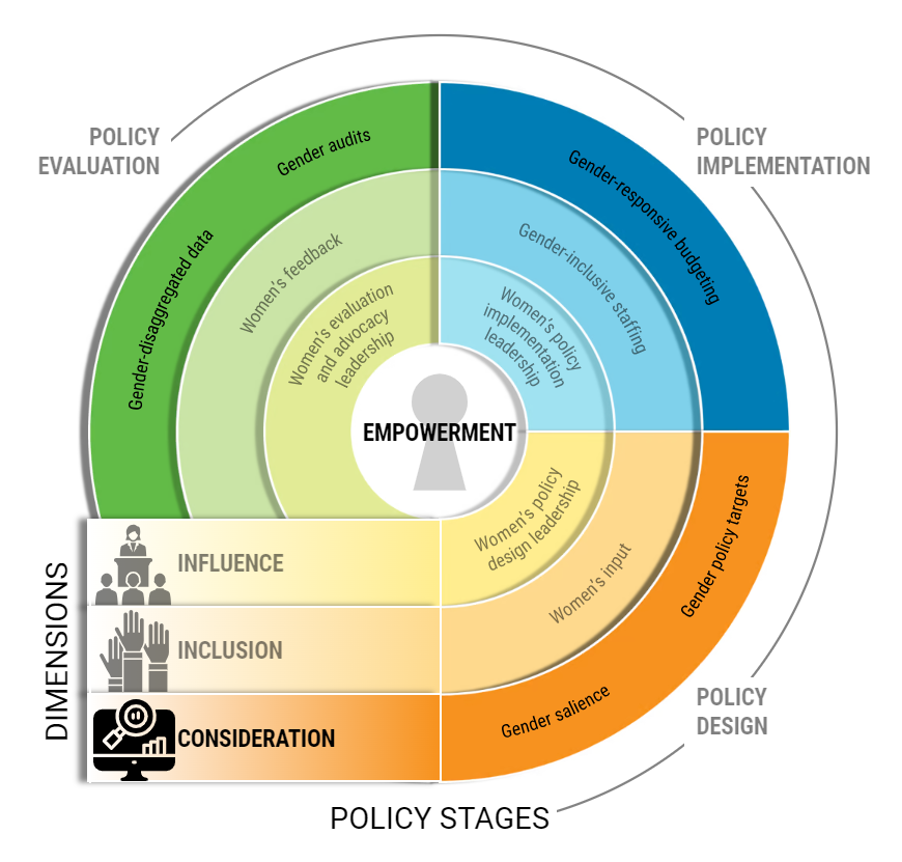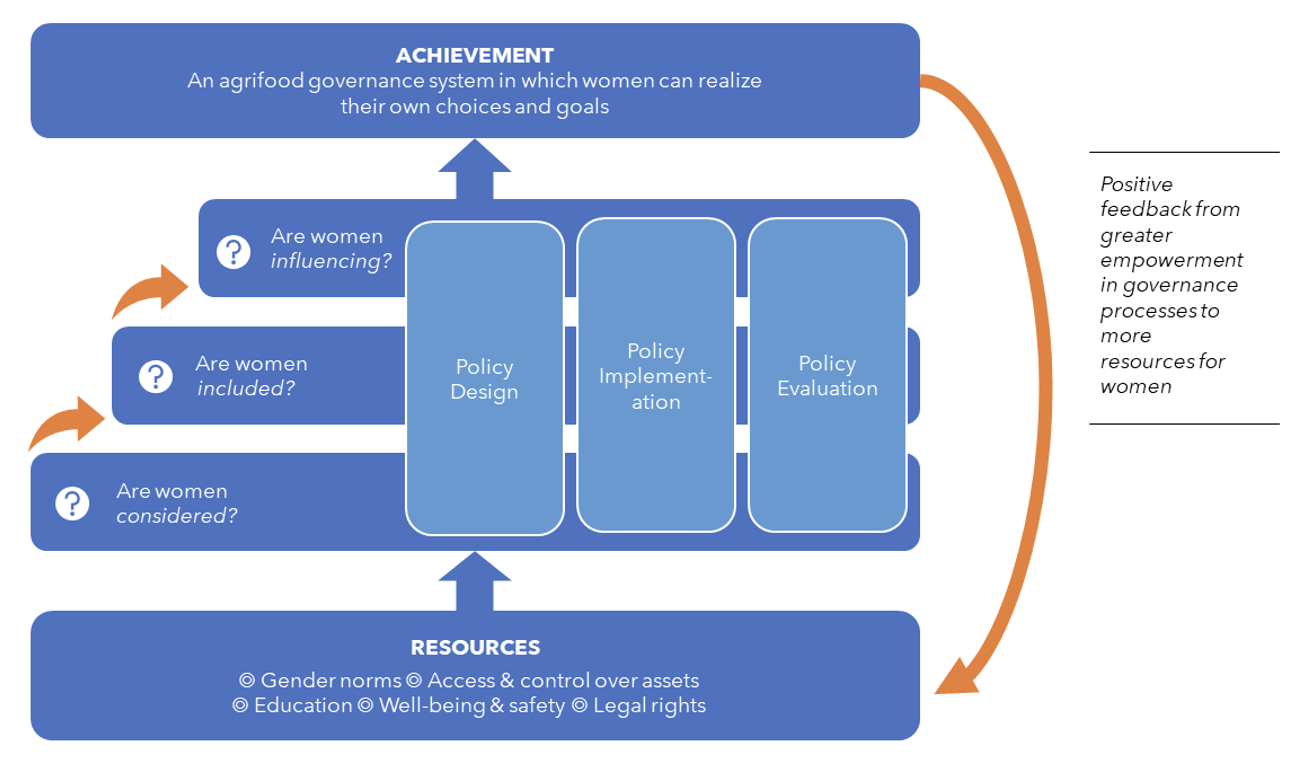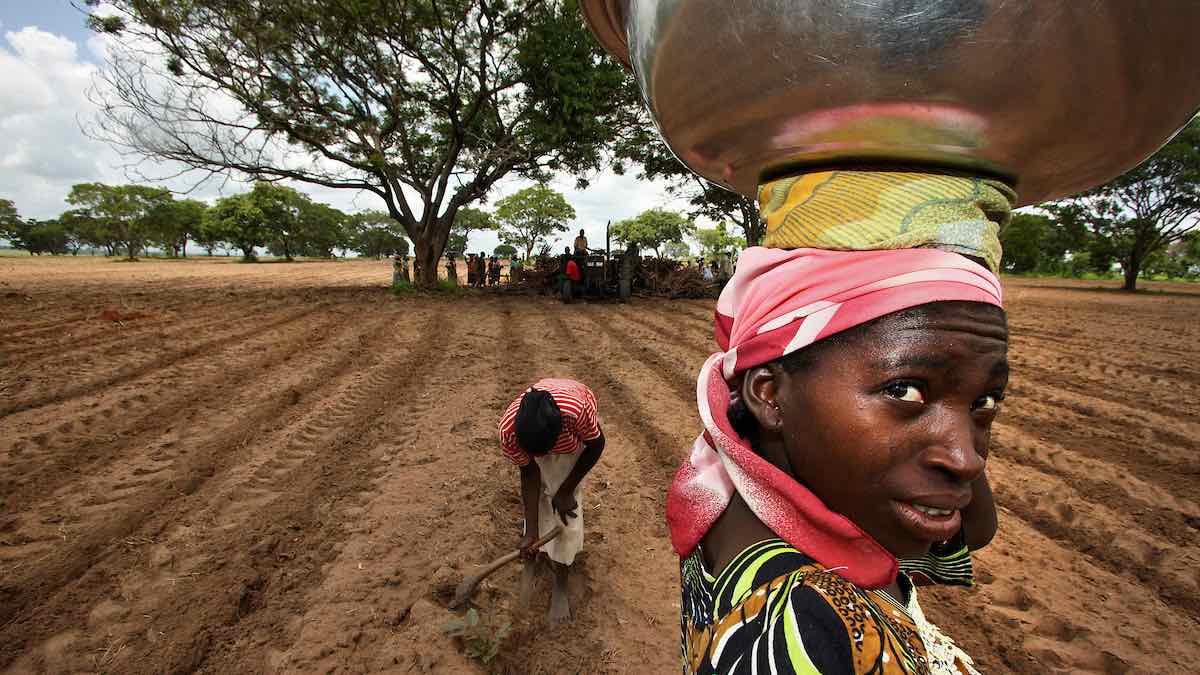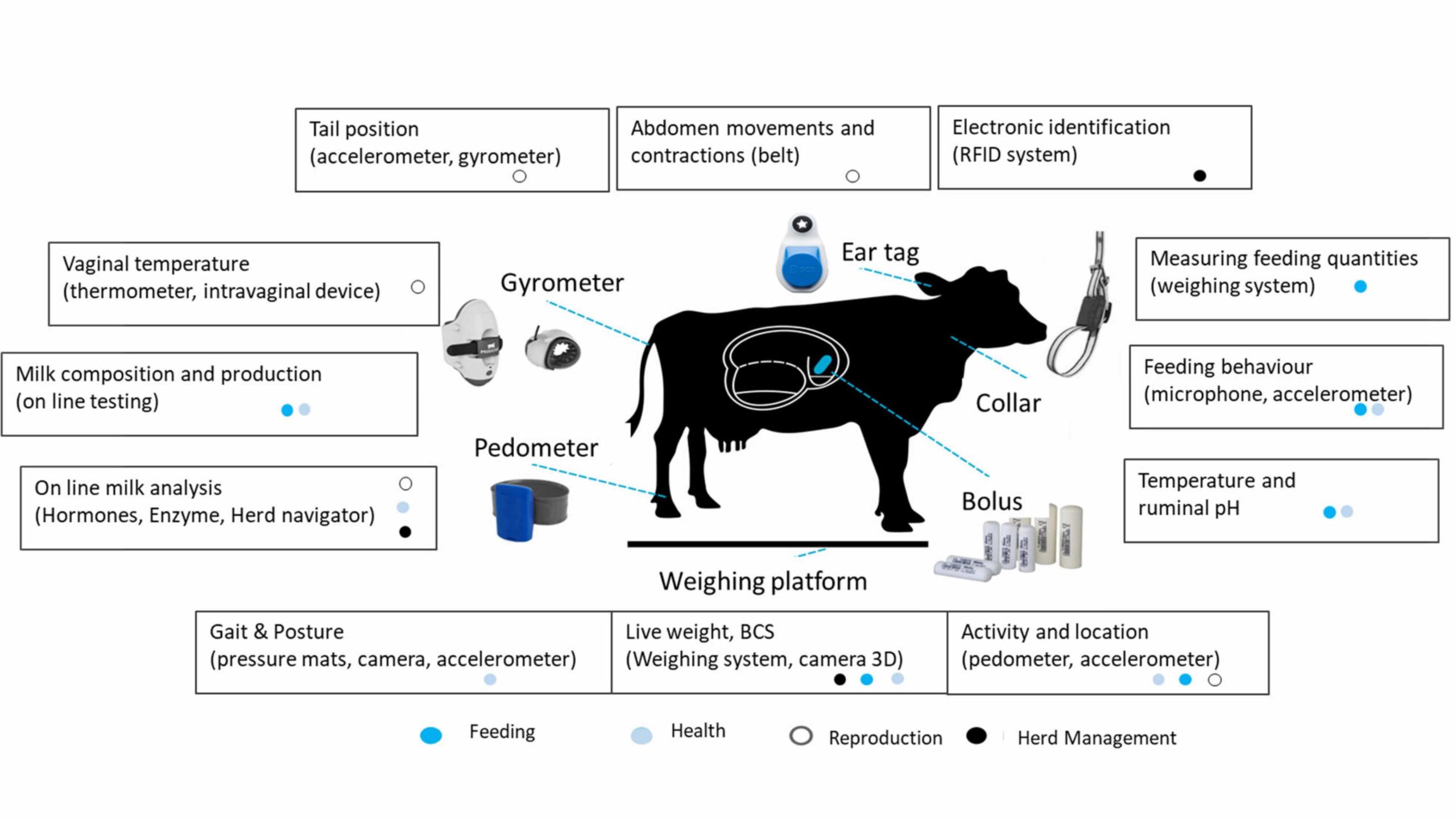Well-designed and well-implemented agrifood policies can play a significant role in closing gender gaps and setting countries on a pathway toward sustainable and equitable food systems. IFPRI’s new Women’s Empowerment in Agrifood Governance (WEAGov) assessment tool—developed with support from the CGIAR research initiative on Gender Equality—measures women’s voice and agency in national-level policymaking in the agrifood sector (Figure 1). Identifying gaps in women’s voice in the agrifood policy process and finding entry points for inclusive participation are crucial to efforts to addressing gender inequities in agrifood systems—and to achieving the Sustainable Development Goals.
IFPRI researchers employed WEAGov as they joined forces with the African Women in Agricultural Research and Development (AWARD)’s Gender Responsive Agriculture Systems Policy (GRASP) Fellowship Program in a virtual workshop on June 21. More than 150 researchers and fellows from 12 African countries exchanged insights and explored avenues for collaboration that could catalyze gender transformative change in African agrifood policymaking.
Figure 1: WEAGov assessment framework

The GRASP fellowship targets mid-career African women in the policy field—ranging from government ministries, civil society organizations, and academia to help them catalyze the design and implementation of gender-responsive agricultural policies across Africa. The fellowship aims to cultivate a pool of confident and capable African women to lead policy changes to improve African smallholders’ livelihoods.
Each GRASP fellow is paired with a senior professional as a mentor and with a junior professional as a mentee. Each fellow works on a policy innovation project (PIP) that analyzes the ways in which agrifood policies could exacerbate gender gaps in agrifood systems, gender-based constraints to designing solutions to these challenges, and opportunities to promote gender equality and women’s empowerment in agrifood policies. The inaugural cohort of fellows is focusing on subjects including gender analysis of seed and livestock policies, women’s inclusion in value chains, increasing women’s capacity to comply with trade regulations, and other critical policy areas within their respective agrifood sectors. The fellows receive a modest catalytic fund to begin implementing their policy innovation projects.
At the event, the IFPRI team presented three ways that WEAGov could enhance and support fellows’ PIPs. First, the WEAGov conceptual framework (Figure 2) can be used to analyze women’s voice and agency within policymaking in the agrifood sector as a whole or within a specific policy. Where many gender policy analyses focus on the gender content in a policy document, the WEAGov conceptual framework considers gender inclusion within policy implementation and evaluation as well, and evaluates the different ways in which women can be engaged in decision-making—e.g., having their needs and priorities considered, being involved as active agents, and leading in key parts of the policy process. Overall, 77% of workshop participants noted that the conceptual framework would be helpful for their PIPs.
Figure 2: WEAGov conceptual framework

IFPRI researchers also trained workshop participants on the WEAGov methodology and how to measure and score multiple gender dimensions of a national- or state-level agrifood policy process and track progress over time. Finally, IFPRI researchers shared a variety of specific desk review tools, survey instruments, and key informants’ interview guides that fellows could use to apply parts of WEAGov to their projects.
Several AWARD fellows shared details about how they planned to use gender analysis in their PIPs and ideas for the policy areas most in need of gender attention in their home countries. A fellow from Senegal, for example, intends to analyze women agrifood entrepreneurs and identify specific policies that could better support their needs and priorities to catalyze their success. A fellow from Nigeria plans to analyze the national fishery policy, which is due to be reformed, to propose recommendations for women to further engage in the sustainability of fish value chains.
Moving ahead, IFPRI will support efforts by fellows to apply different aspects of WEAGov into their PIPs. After a year, IFPRI and AWARD will integrate and synthesize findings and learning across the different projects in various countries to be useful to decision-makers and researchers across Africa.
Jordan Kyle is a Research Fellow with IFPRI’s Poverty, Gender, and Inclusion Unit; Catherine Ragasa is a Senior Research Fellow with IFPRI’s Innovation Policy and Scaling Unit; Susan Kaaria is the Director of AWARD; Margaret Mangheni is Senior Manager, Gender and Programs, at AWARD; Dorine Odongo is a Senior Communications Manager at AWARD; Anne Omamo is a Program Officer at AWARD.







